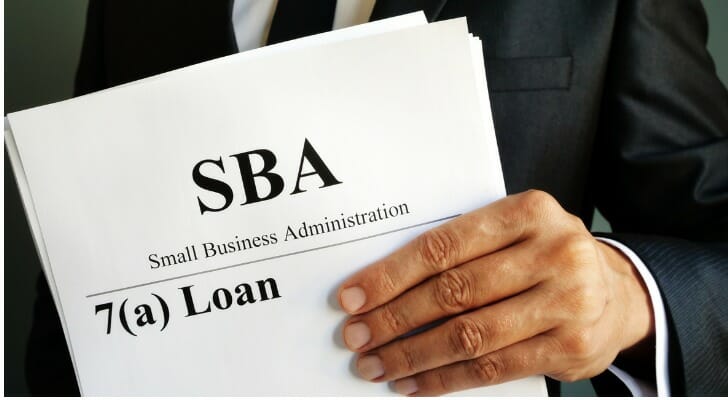Are VC-Backed Businesses Eligible for PPP Loans?
One of the most significant provisions of the coronavirus stimulus package is the Paycheck Protection Program, which can provide forgivable loans to small businesses to help them maintain payroll. However, one of the key...Friday, April 3rd 2020, 10:11 am
By Eric Reed
One of the most significant provisions of the coronavirus stimulus package is the Paycheck Protection Program (PPP), which can provide forgivable loans to small businesses to help them maintain payroll. However, one of the key questions facing many startup businesses is whether the Small Business Administration’s rules disqualifies some small businesses that have venture capital funding.
What Is the PPP?The Paycheck Protection Program (PPP) is a key feature of the Coronavirus Aid, Relief, and Economic Security Act (CARES) Act, better known as the government stimulus program.
This section of the stimulus creates a $349 billion fund worth in forgivable loans to small businesses. The loans can be used to cover up to eight weeks of payroll expenses, as well as certain qualifying costs of overhead. (Note: Readers may also see PPP loans referred to as the new SBA 7(a) loans. This refers to the SBA’s loan guarantee program, which has been now updated to include the Paycheck Protection Program.)
Under the CARES Act, a qualifying small business will have its PPP debt fully forgiven so long as the business spends the money primarily on payroll. At least 75% of the forgiven amount must be spent on payroll, and the business must maintain both staffing levels and rates of pay. (A small business that lays people off or cuts pay will have this debt forgiveness reduced.)
This is a sweeping measure designed to subsidize business payrolls, encouraging them to retain workers in anticipation of a recovery rather than letting staff go across the board.
Why VC-Backed Startups Are ConcernedIn the wake of the CARES Act, small businesses – defined as 500 employees or fewer – have worked to figure out exactly who qualifies for government aid. The SBA’s affiliation rule has raised particular questions on this issue.
This rule judges a business as small based on the number of people employed by both it and “affiliated” companies. The purpose is to prevent subsidiaries and branch offices of major corporations from taking advantage of a program designed to help new businesses and neighborhood restaurants. However, many startup companies have asked if they qualify as affiliates of the venture capital or private equity firms that invested in them. Since these firms typically invest in many businesses at a time, defining startups as affiliated with their investors has the potential to push them beyond the 500-employee limit. Under this interpretation, many of these startups would be disqualified from small business relief under the PPP and under provisions of the CARES Act.
What Is the Affiliation Rule?The SBA defines a small business as one with 500 employees or fewer. The CARES Act extends this definition to the PPP:
“Small businesses with 500 or fewer employees – including nonprofits, veterans organizations, tribal concerns, self-employed individuals, sole proprietorships, and independent contractors – are eligible. Businesses with more than 500 employees are eligible in certain industries, which is one of the features that make the PPP different from other SBA loans.”
However, seeing whether you qualify is not a simple matter of taking a headcount of the people working in your office. The SBA applies what is known as the “affiliation rule” to calculate how many employees work for a given business. It says that if a small business is controlled by another entity – for instance, a parent company – then the controlling entity and all of its affiliates could count as a single enterprise.
Ordinarily the SBA says affiliation applies “when one business controls or has the power to control another or when a third party (or parties) controls or has the power to control both businesses” and control “may arise through ownership, management, or other relationships or interactions between the parties.” The SBA makes this judgment based on the totality of circumstances. Control can apply positively (the controlling company can tell its affiliate what to do) or negatively (the controlling company has veto power).
Real estate creates the classic example of affiliation. It’s common for management companies to split every property they own into its own company, typically an LLC. The central management group will then be another LLC separate from, but in charge of, all the rest. Under this structure a real estate empire can oversee and control thousands of employees at properties spread all across the world, even though each of those properties will technically be a company that only employs a dozen people.
The SBA doesn’t want that group taking advantage of programs designed to encourage small businesses.
Does Affiliation Apply to PPP Loans?For some small businesses, administering the Paycheck Protection Program through the SBA has created an urgent issue. If your business has received funding from a private equity or venture capital firm, does this create a controlling relationship under the affiliation test?
If so, this would create a situation very similar to our landlord example above. The SBA would consider every individual business in which the firm invested part of a general network of businesses, disqualifying all of them from these small business loans.
Startup companies, however, have argued that this in no way represents the actual nature of their investor relationship. Most businesses with large investors operate independently, and they don’t become an operational franchise of the investing firm. They are an investment that will pay off based on the work of others.
On April 3, 2020, the Treasury released a narrower definition of affiliation for the PPP program.
It Depends on Four Affiliation TestsAccording to the newly modified rules, the four affiliation tests are based on:
- Equity ownership – a business is an affiliate of another entity if that entity owns or has the power to control more than 50 percent of the business’s voting equity.
- Stock options, convertible securities and agreements to merge – generally, the SBA will treat options, convertible securities and agreements as though the rights granted have been exercised, which may have a present effect on the power to
control a business. - Management – generally, a business is an affiliate if the CEO, president, other officers, managing members or managing partners of the applicant business also control the management of one or more other concerns. Or if the person or entity who controls the board of directors or management of the business also controls the board of directors or management of one or more other concerns.
- Identity of interest – generally, there is an affiliation when there is an identity of
interest between close relatives, as defined in 13 CFR 120.10, with identical or substantially identical business or economic interests.
For a startup company with private equity or venture capital investors, affiliation will generally be based on the first test, stock ownership. The investing firm will own a portion of your business. If it owns or controls at least 50% of the voting shares of your business, then the investing firm controls the business for the purposes of affiliation.
The big question, though, was what if no single investor controls a majority share of the business’ stock, but several investing firms, combined, do? Would affiliation arise in this situation?
According to the newest guidance, the answer is no. So long as no single investment firm controls a majority of shares, startup firms are considered independent of their investors.
So What Should Startups That Are Affiliates Do?No matter what, a startup company will most likely be considered affiliated with an outside investor in one of two situations:
- If that investment firm controls 50% or more of the startup’s stock
- If that firm has the power to exercise an absolute and unilateral veto over company actions.
In that case, you should begin working with your investor. First, discuss how many other businesses they currently invest in and the total employee count across this network. It’s possible that even with the affiliation rule in place, you will not cross the SBA’s 500-employee threshold. Otherwise, begin to determine next steps through alternative relief programs.
Your best course of action is to contact a lender. The SBA has published a tool to search for eligible lenders in your area. You can also check out our list of participating banks and their requirements. Begin the application process for a PPP loan while being absolutely clear about your investor relationships. Lenders have a surprising amount of discretion when it comes to approving a loan, but hiding potentially relevant information is a federal crime. It’s much better to risk having your loan rejected today than getting a call from the Treasury tomorrow.
Tips for Small Business Owners- Many financial advisors specialize in working with business owners. Finding the right financial advisor who fits your needs doesn’t have to be hard. SmartAsset’s free tool matches you with financial advisors in your area in five minutes. If you’re ready to be matched with local advisors who will help you achieve your financial goals, get started now.
- Learn about other programs that can help struggling small businesses. Some of these programs are grants, some are debt relief and some are loans.
Photo credit: ©iStock.com/chee gin tan, ©iStock.com/designer491, ©iStock.com/alexsl
The post Are VC-Backed Businesses Eligible for PPP Loans? appeared first on SmartAsset Blog.
Information contained on this page is provided by an independent third-party content provider. Frankly and this Site make no warranties or representations in connection therewith. If you are affiliated with this page and would like it removed please contact pressreleases@franklymedia.com
More Like This
April 3rd, 2020
December 14th, 2024
December 14th, 2024
Top Headlines
December 14th, 2024
December 14th, 2024
December 14th, 2024
December 14th, 2024











